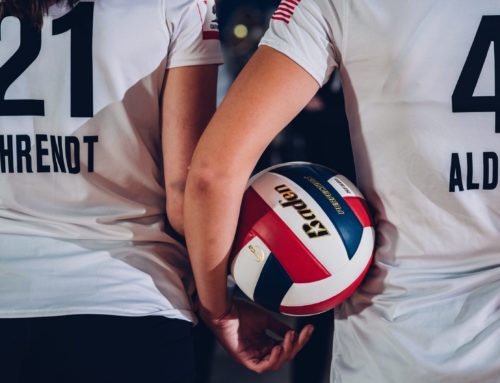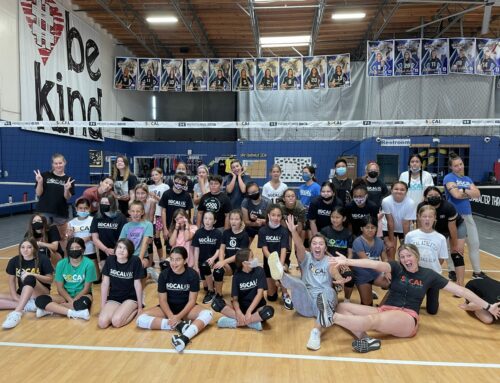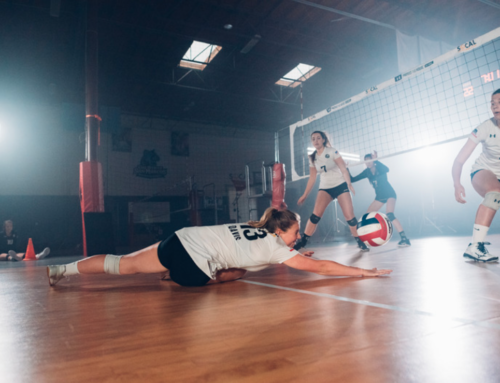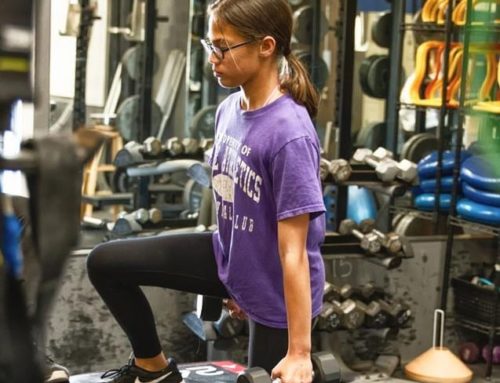Every athlete deserves a positive and uplifting club volleyball experience, and parents play a vital role in achieving this. For an athlete to thrive, all parties involved, the athlete, parent, and coach, must collectively align their goals and expectations for the individual athlete and the team. If managed correctly, with both parents and coaches working together for the athlete’s benefit, the athletic experience can be extremely positive. There is a delicate line between supportive encouragement and interference. Everyone in the process, coaches and parents alike, must never forget that kids’ needs come first. The following article offers an actionable guide for parents to embrace their vital role in their child’s club volleyball experience.
Aligning your goals and expectations with your child’s
Parents, ask yourself the following questions about your child’s club volleyball experience:
- Do you want them to play? If so, why?
- What will be a successful season for you as a parent?
- What are your goals for them?
- What do you hope they gain from the experience?
- What do you think their role will be on the team?
Then, ask your child the following questions and listen — without interrupting:
- Why are you playing?
- What is a successful season?
- What goals do you have?
- What do you think your role will be on the team?
If your child’s answers differ from yours, you must reevaluate your ambitions and accept them from your child’s perspective. It may not be easy, but supporting your child where they are in their journey is one of the best ways to nurture their growth and development.
Share Expectations
Many athletes feel their parents do not understand their team roles, and most parents always feel that their child’s role is more significant than the athlete knows. This situation often turns into frustration and second-guessing and frequently puts the athlete between coach and parents. This is a position where the athlete can only lose.
Release them to the game.
Parents should get to know their child’s coach, and once trust is established, one of the best gifts parents can give their children is to release them to the caretakers of their child’s sport. If a parent needs to talk to the coach about an issue they’re concerned about, they should allow the coach to choose an appropriate time and place.
Appropriate concerns to discuss with a child’s coach are:
- Mental and physical treatment of your child
- Ways to help your child improve
- Concerns about your child’s behavior
Inappropriate areas of concern that parents should not discuss with their child’s coaches include:
- Playing time
- Team strategy or play-calling
- Other team members
By releasing their athlete to the game and coach, parents tell them that all successes, failures, and problems are theirs. There are few places in a young person’s life where their parents can say, “This is your thing.” This can’t be done with many things in your child’s life, but it can be done in athletics. The dilemma for most adults is that it is easy for them to see solutions in athletic situations and too difficult for adults to let their children find their own solutions. Athletics is the best place for young people to take risks and fail. Is there a better place for a kid to take a chance and fail than on the court? No downside exists for allowing a young athlete to take a risk and fail in a game or practice.
Red flags for parents that have not “released their kids” to the game:
- Continuing to live their personal athletic dream through the child
- Taking credit when the child has done well
- Trying to solve all the child’s athletic-related problems
- Trying to continue to coach the child when the child probably knows more about the game than the parent does
- Taking everything too seriously – if nervous before the child’s game, having difficulty recovering from a loss, making mental notes during the game so he can give advice later, becoming verbally critical of an official
- Athletes avoid parents after the game or are embarrassed about parent involvement
- Athlete focused on his parents in the stands for approval or out of fear, not on the game
What Athletes Need from Their Parents
- A parent’s most important contribution during a game is modeling appropriate behavior. What parents need to model more than anything is poise and confidence. If parents expect their children to react to the ups and downs of a game with poise, they must model it. If an athlete looked at his parents during the game, would he draw confidence, assurance, and poise from what he saw?
- The second responsibility athletes say that they need their parents to fulfill is to focus on the team/ this focus helps adults not only get attention off their child but also off all the things that are not in parents’ control (ie the score, the referees, the opponents, coaching and playing conditions).
- Thirdly, kids need only one instructional voice offering advice during the game…the coach’s voice.
Learning How to Watch the Game
- There are only four roles during a game: spectator, competitor, official, and coach. Choose only ONE of these roles.
- The closer the parents are in proximity, the more difficult it is to watch and keep everything in perspective. Anyone in attendance can question each whistle and every substitution, making it more difficult for an adult with emotional ties to the contest to remain poised and encouraging. Almost all parents believe their child should play more or have a bigger role on the team. As such, it is very difficult for parents to be objective. Coaches, on the other hand, can be objective.
- Players indicate they love having parents at games when they act appropriately. If they cannot adhere to reasonable standards or behavior concerning modeling, poise, and confidence, many athletes state that all factors considered, they would rather have their parents stay home.
After the Game
- When recalling their least enjoyable memory, many athletes will name “after the game” and often specifically “after the game in the car with my parents.” This situation is when the most confidence cutting, confrontation, and confusion occur for the athlete. Unfortunately, some athletes do not want to go home after the game because they do not want to face questioning or criticism. What they need most at these times is not another coach but a parent.
- Many athletes often indicated that conversations with their parents after a game made them feel as if their value was somehow tied to playing time or winning or losing athletic contests.
- Most athletes desperately want their parents to give them time and space at the end of the game. The more competitive the athlete and the sport, the more time and space the players need.
- Parents should leave their children alone until they’re receptive to interaction with them. Then, when they do come, parents should give them quiet understanding, be reflective listeners, and bring them back to the bigger perspective.
Conclusion
When parents stop and analyze their children’s athletic experience, they want them to play sports by providing an opportunity to develop physically and emotionally and enjoy themselves. The side benefit of playing sports is that kids are given a good opportunity to learn how to work and get along with others, to take risks in a public arena, and survive, to learn to set and achieve goals by developing positive work habits, to learn how to succeed and fail with dignity, and to develop friendships that can last a lifetime.




